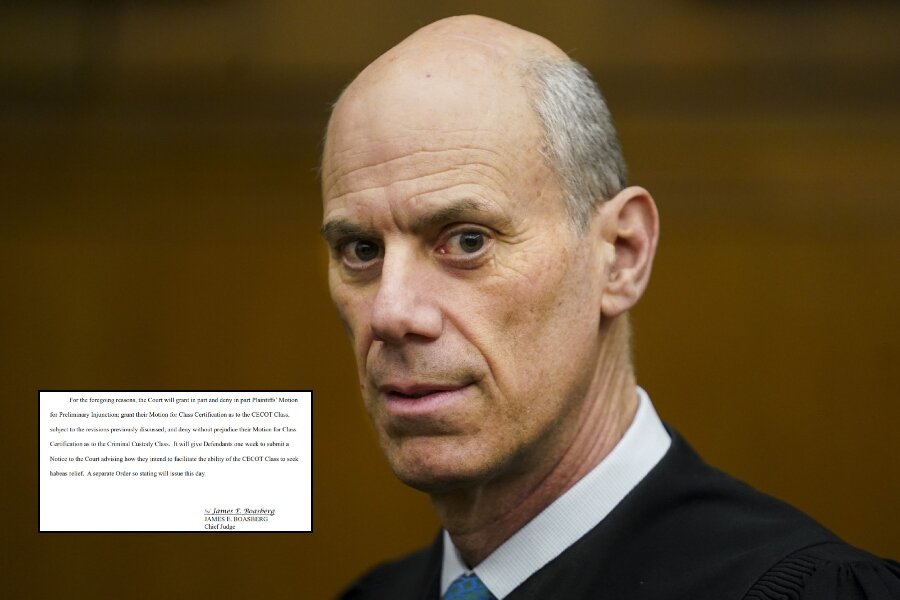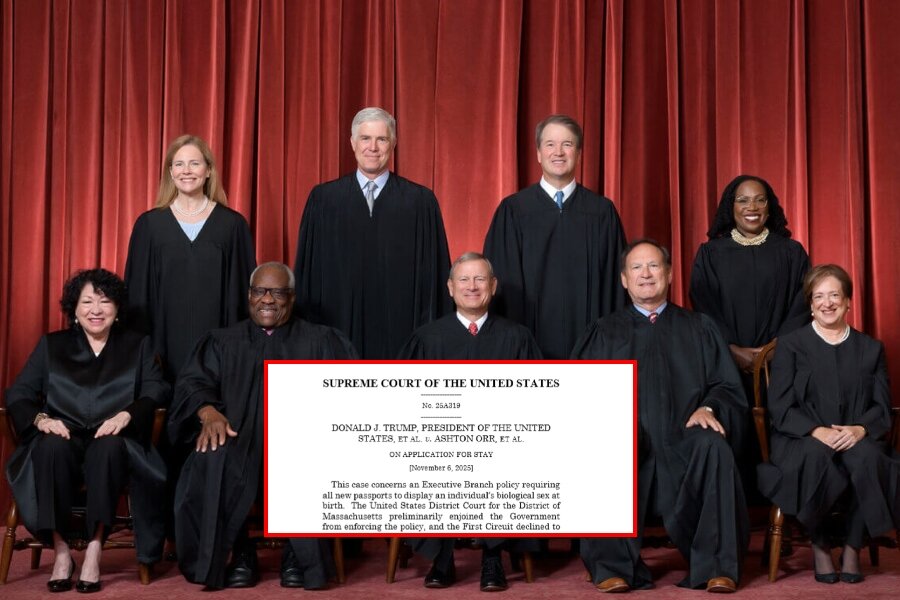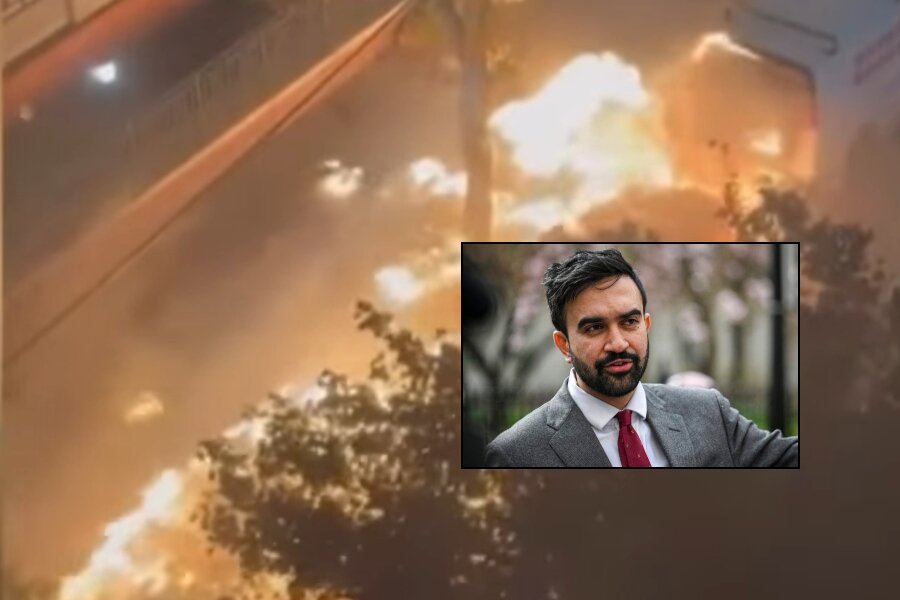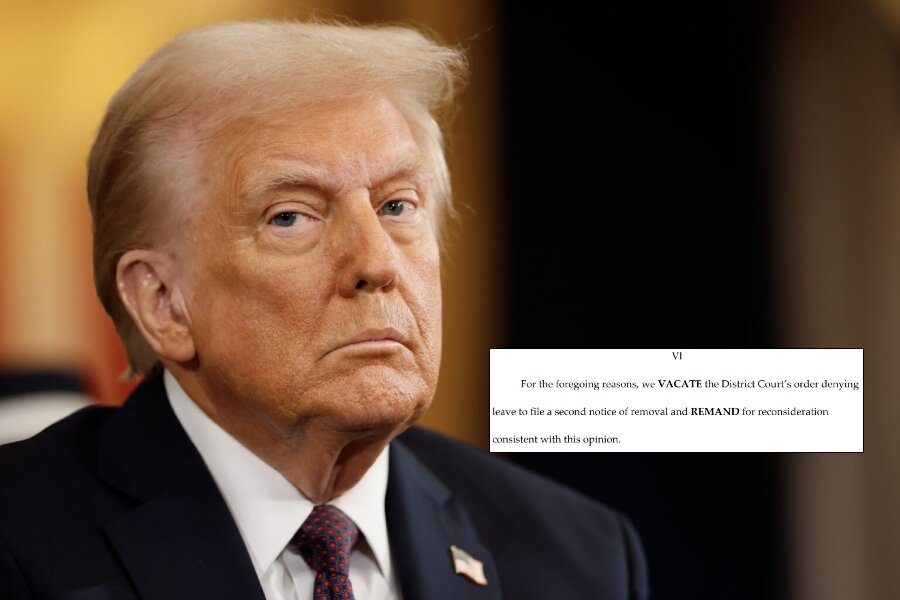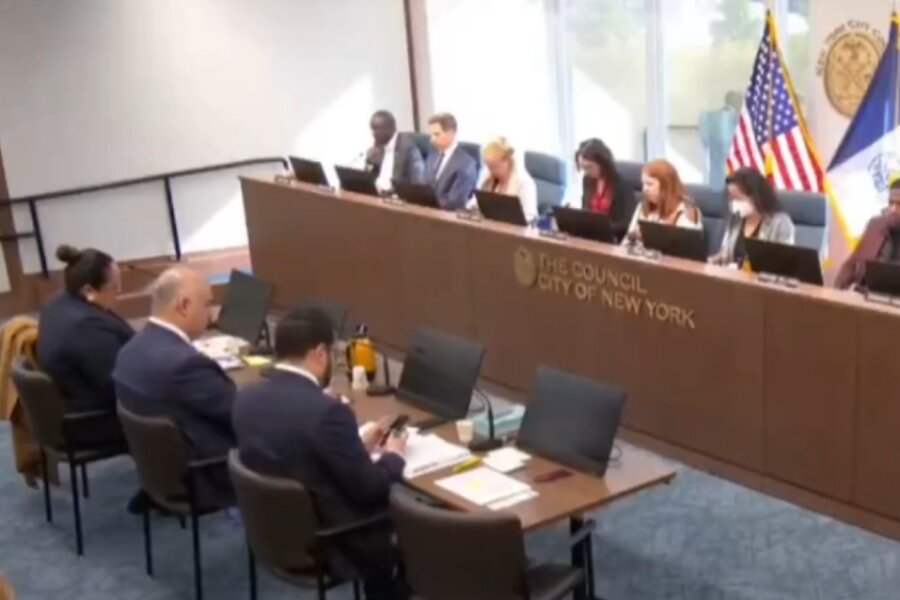U.S. District Judge James Boasberg has ordered the Trump administration to provide a form of due process known as habeas relief for individuals it deported and who are currently being held in a Salvadoran maximum security prison.
In an order issued on June 4, Boasberg said these individuals were removed in March without any meaningful opportunity to seek writs of habeas corpus, which is a method for individuals to challenge their detention. He said that while his order may involve “delicate questions relating to diplomacy and national security,” the government would need to propose ways of providing due process to the prisoners.
The order was the latest in a series of court cases surrounding Trump’s attempt to use a wartime law, known as the Alien Enemies Act, to deport members of the Venezuelan Tren de Aragua gang. The issue has already reached the Supreme Court in multiple cases, including the one wherein Boasberg issued his June 4 order.
Although the Supreme Court removed two of Boasberg’s prior orders, it said that deportees must receive an opportunity for habeas relief. Attorneys have also challenged whether Trump’s invocation of the Alien Enemies Act, which is applicable during an invasion or incursion, was valid. Boasberg didn’t rule on that issue.
He said that even if Trump properly invoked the Act and the deportees were gang members, the administration needed to provide due process.
“Perhaps, moreover, Defendants are correct that Plaintiffs are gang members,” the judge said. “But—and this is the critical point—there is simply no way to know for sure, as the … Plaintiffs never had any opportunity to challenge the Government’s say-so.”
His opinion started with a scene from the book “The Trial,” suggesting those deported encountered Kafkaesque conditions from the government.
The administration has accused Boasberg of overstepping his authority by wading into foreign affairs, a realm traditionally left to the executive branch.
The administration has expressed concern about working with deportees now that they’re in a foreign nation. It’s unclear how the prisoners at the Centro de Confinamiento del Terrorismo or CECOT facility in El Salvador will receive habeas relief.
Boasberg said in his June 4 opinion that a government declaration to the court showed that the CECOT detainees’ detention was not solely at the behest of the U.S. government.
He also gave the administration a week to inform the court on how it intended to facilitate CECOT detainees’ ability to obtain habeas relief.
Share your thoughts by scrolling down to leave a comment.

